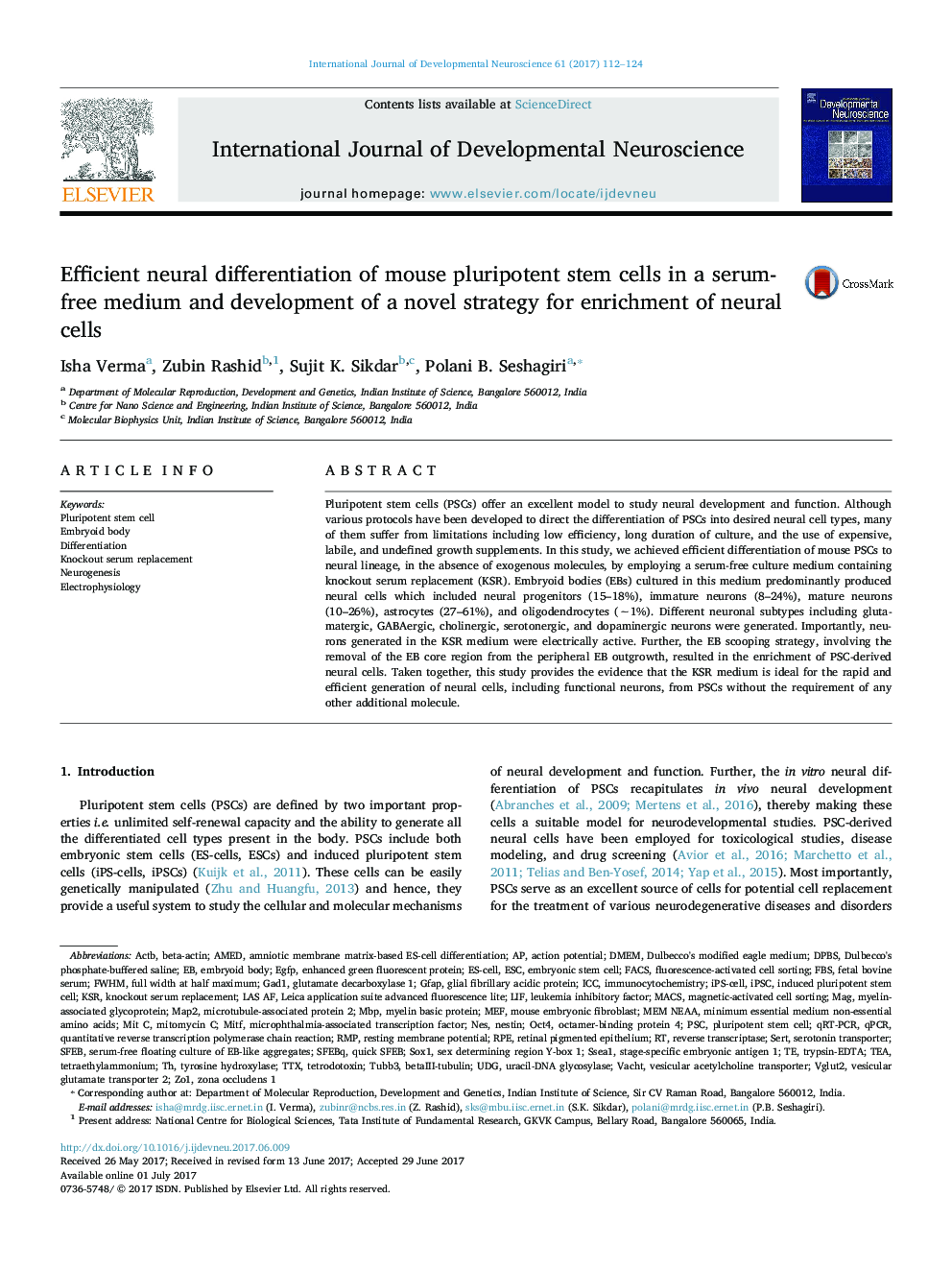| Article ID | Journal | Published Year | Pages | File Type |
|---|---|---|---|---|
| 5585747 | International Journal of Developmental Neuroscience | 2017 | 13 Pages |
Abstract
Pluripotent stem cells (PSCs) offer an excellent model to study neural development and function. Although various protocols have been developed to direct the differentiation of PSCs into desired neural cell types, many of them suffer from limitations including low efficiency, long duration of culture, and the use of expensive, labile, and undefined growth supplements. In this study, we achieved efficient differentiation of mouse PSCs to neural lineage, in the absence of exogenous molecules, by employing a serum-free culture medium containing knockout serum replacement (KSR). Embryoid bodies (EBs) cultured in this medium predominantly produced neural cells which included neural progenitors (15-18%), immature neurons (8-24%), mature neurons (10-26%), astrocytes (27-61%), and oligodendrocytes (â¼1%). Different neuronal subtypes including glutamatergic, GABAergic, cholinergic, serotonergic, and dopaminergic neurons were generated. Importantly, neurons generated in the KSR medium were electrically active. Further, the EB scooping strategy, involving the removal of the EB core region from the peripheral EB outgrowth, resulted in the enrichment of PSC-derived neural cells. Taken together, this study provides the evidence that the KSR medium is ideal for the rapid and efficient generation of neural cells, including functional neurons, from PSCs without the requirement of any other additional molecule.
Keywords
glutamate decarboxylase 1PSCMAGFWHMTTXRPEVGLUT2MAP2GAD1VAChTOct4RMPMACSMitomycin CMITFTUBB3AMEDSOX1KSRUDGLIFZo1FACSnESDMEMFBSGFAPICCMBPMEFDPBSeGFPDulbecco's modified Eagle MediumElectrophysiologyRetinal pigmented epitheliumImmunocytochemistrybeta-actinTetraethylammoniumtetrodotoxinReverse transcriptaseDifferentiationtyrosine hydroxylaseembryoid bodyknockout serum replacementvesicular acetylcholine transportervesicular glutamate transporter 2fluorescence-activated cell sortingSERTfetal bovine serumserotonin transporterEmbryonic stem cellPluripotent stem cellInduced pluripotent stem cellleukemia inhibitory factorfull width at half maximumActbMicrophthalmia-associated transcription factorDulbecco's phosphate-buffered salinemagnetic-activated cell sortingZona occludens 1mouse embryonic fibroblastnestinNeurogenesisquantitative reverse transcription polymerase chain reactionaction potentialresting membrane potentialGlial fibrillary acidic proteinenhanced green fluorescent proteinmicrotubule-associated protein 2Myelin basic proteinTEAUracil-DNA glycosylaseMyelin-associated glycoprotein
Related Topics
Life Sciences
Biochemistry, Genetics and Molecular Biology
Developmental Biology
Authors
Isha Verma, Zubin Rashid, Sujit K. Sikdar, Polani B. Seshagiri,
